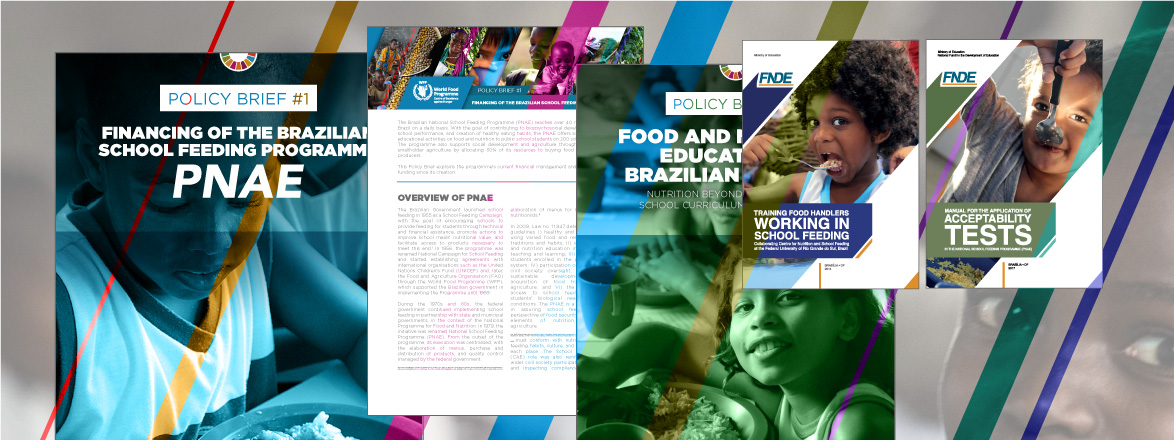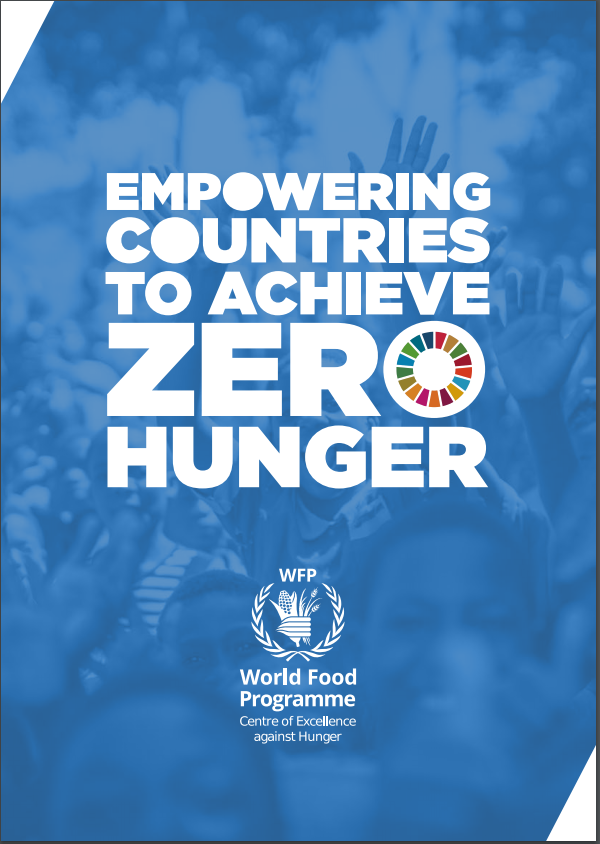
Library
- Library

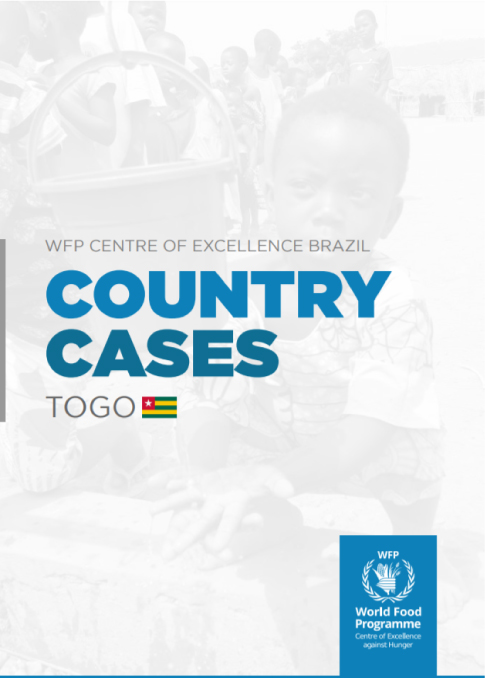
Country Cases - Togo
Togo's collaboration with WFP CoE began in 2014, when a delegation from the country came to Brazil on a Study Visit, to learn about the Brazilian experience in home-grown school feeding. Since then, WFP CoE has continuously engaged with WFP Togo and the country's government, dedicated to establishing the legal and normative bases that can guarantee the existence and guide the implementation of school feeding in Togo. Over the years, WFP CoE supported the development of the country's National School Feeding Policy and the School Feeding Bill, while maintaining consistent engagement with and support to Togo's government and WFP Country Office.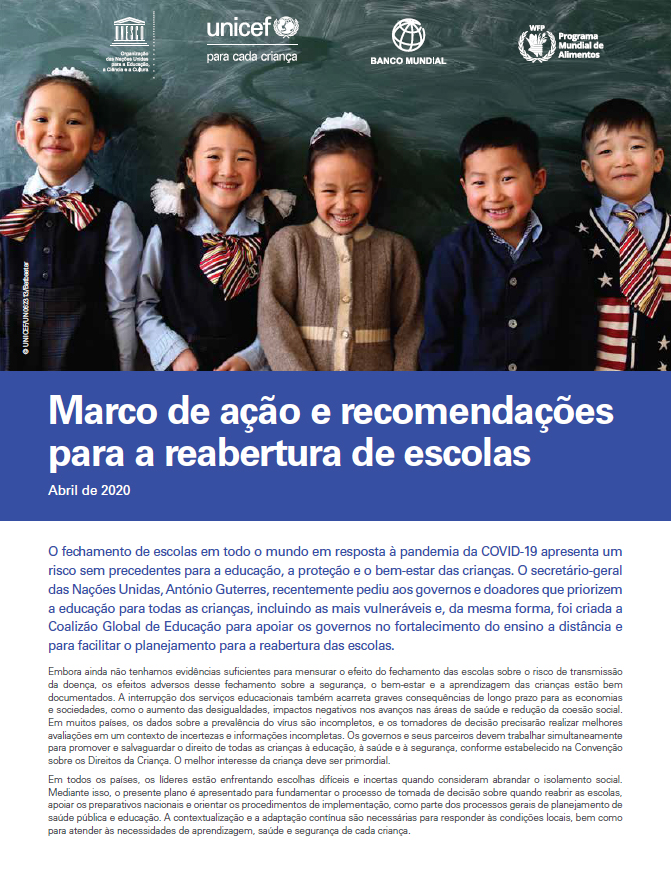
Framework for action and recommendations for the reopening of schools
The closure of schools around the world in response to the COVID-19 pandemic poses an unprecedented risk to children's education, protection and well-being. The United Nations Secretary-General, António Guterres, recently called on governments and donors to prioritize education for all children, including the most vulnerable, and, likewise, a Global Education Coalition was created to support governments in strengthening distance learning and to facilitate the planning of a reopening of schools.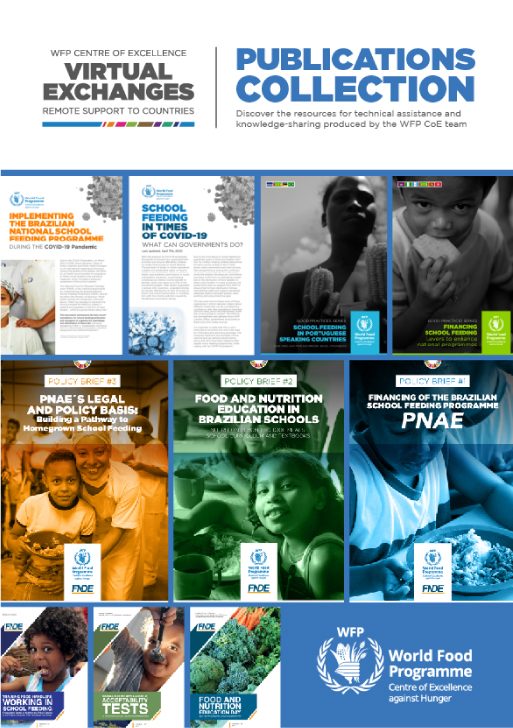
Virtual Exchanges Publication Collection
Here are the latest publications produced by the WFP Centre of Excellence against Hunger Brazil. The list includes papers on how countries are responding to the COVID-19 pandemic to keep school feeding programmes running, in addition to other publications such as Policy Briefs, Good Practices and manuals.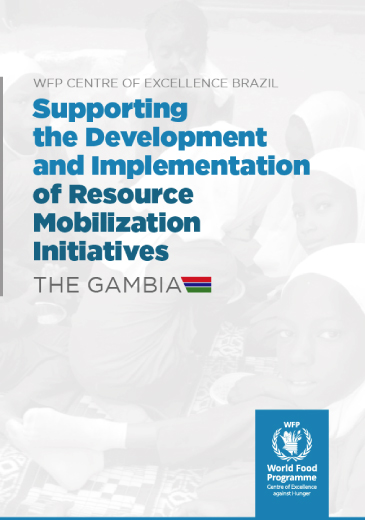
Supporting the Development and Implemantation of Resource Mobilization Initiatives: The Gambia
A new document published by the WFP Centre of Excellence against Hunger Brazil showcases the path that led to a successful case of project proposal preparation, from the initial call to the final approval of a USD 16 million grant. The process was initiated by the WFP country office in The Gambia in March 2019, when the Global Agriculture and Food Security Programme (GAFSP), a global fund financed by the G20 and managed by the World Bank, was launched. The GAFSP call aimed at providing resources to scale-up agricultural, food and nutrition security assistance to fragile and conflict-ridden countries.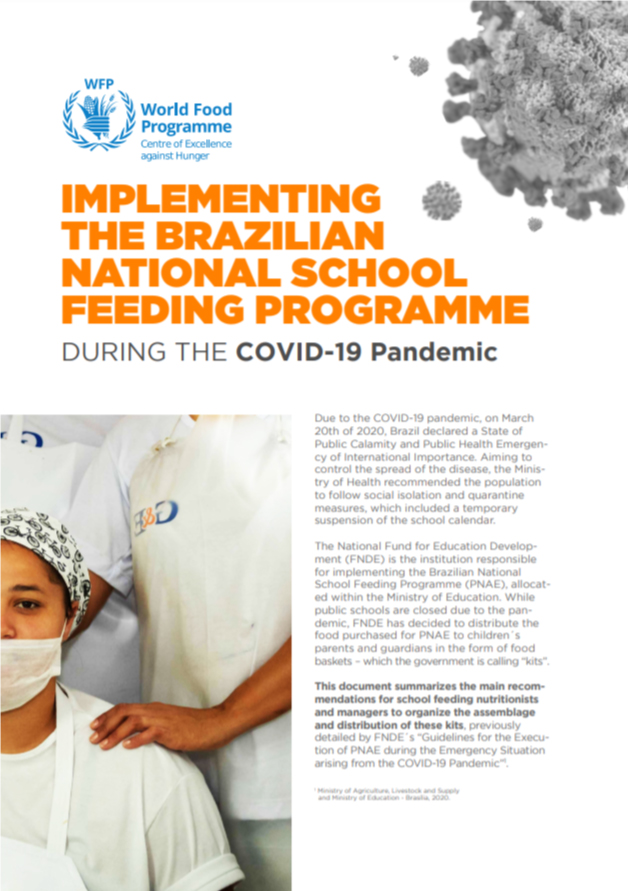
Implementing the Brazilian National School Feeding Programme During the COVID-19 Pandemic
With the suspension of the school calendar due to the COVID-19 pandemic, the Brazilian National School Feeding Programme (PNAE), has decided to distribute the food purchased for the programme to children’s parents and guardians in the form of food baskets – which the government is calling “kits”. The WFP Centre of Excellence against Hunger Brazil has created a document that summarises the main recommendations for school feeding nutritionists and managers to organise the assemblage and distribution of these kits, as detailed by FNDE´s “Guidelines for the Execution of PNAE during the Emergency Situation arising from the COVID-19 Pandemic”.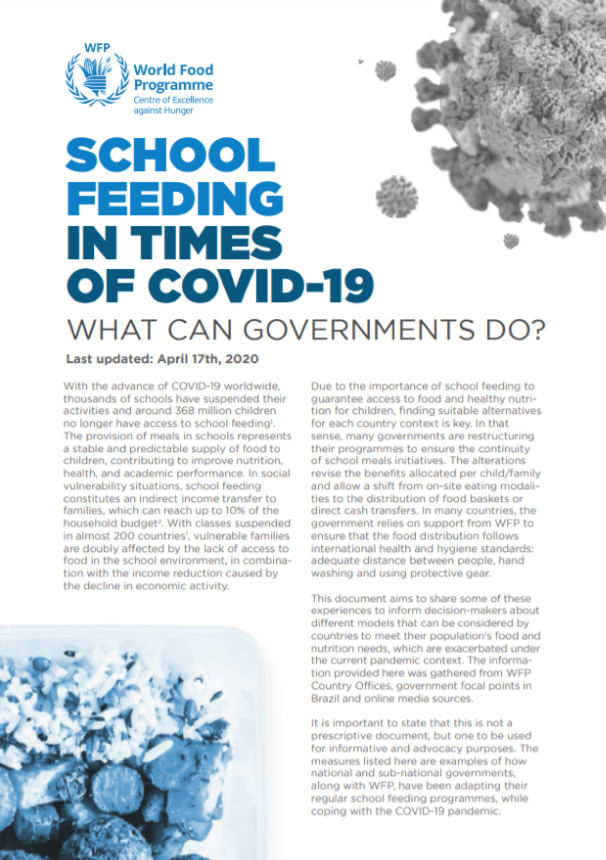
School feeding in times of COVID-19
With the advance of COVID-19 worldwide, thousands of schools have suspended their activities and around 368 million children no longer have access to school meals. The provision of meals in schools represents a stable and predictable supply of food to children, contributing to improve nutrition, health, and academic performance. In order to ensure the continuity of school meals initiatives, many governments are restructuring their programmes. The changes include the revision of benefits allocated per child/family and allow a shift from on-site eating modalities to the distribution of food baskets or direct cash transfers.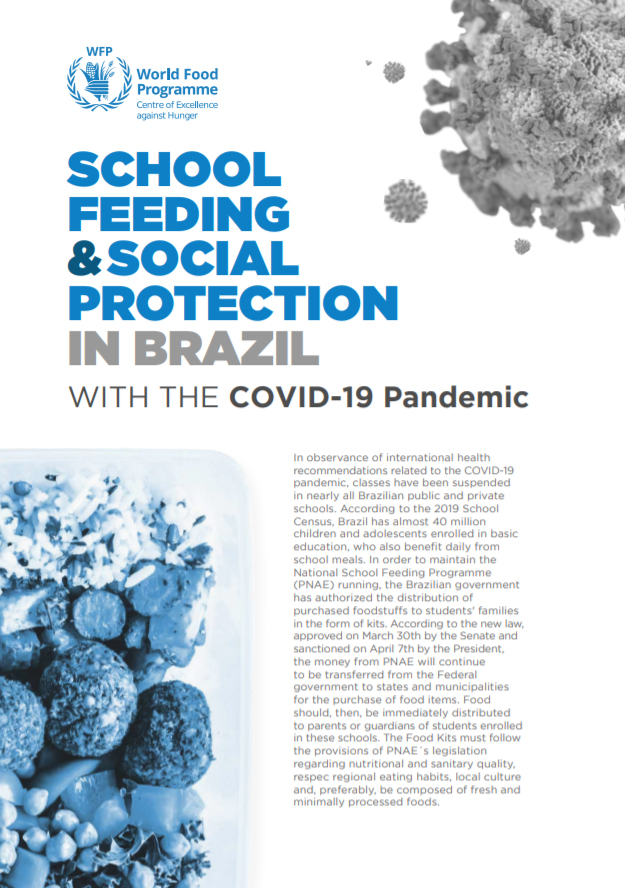
School Feeding and Social Protection in Brazil with the COVID-19 Pandemic
Public and private schools suspended classes throughout Brazil as part of the Covid-19 prevention actions. This means that the nearly 40 million children and adolescents enrolled in basic education – and who also benefit from daily school meals – are no longer receiving this service. The publication presents the actions being taken in Brazilian states and municipalities to maintain school meals distribution during the crisis.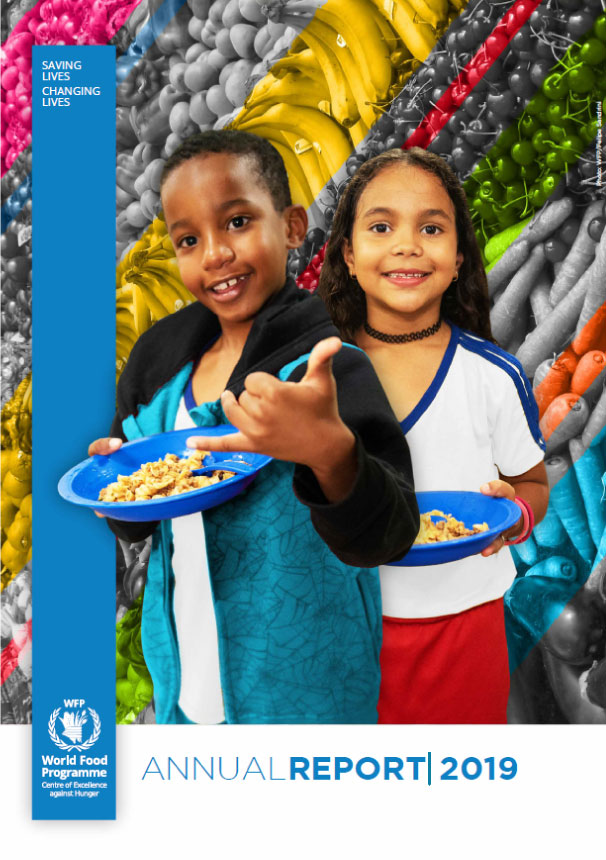
WFP Centre of Excellence against Hunger Brazil 2019 Annual Report
The WFP Centre of Excellence against Hunger Brazil 2019 Annual Report presents the activities carried out and the results achieved throughout the year. The document is divided into four main areas: Technical and Advisory Services; Partnerships Promotion; Advocacy Services; and Knowledge Services. Throughout 2019, we had great moments of strengthening and expanding partnerships and we also adopted innovative solutions. It was a year of hard work that paved the way for the intensification of activities for the coming years, especially since 2020 marks the beginning of the Decade of Action to achieve the Sustainable Development Goals.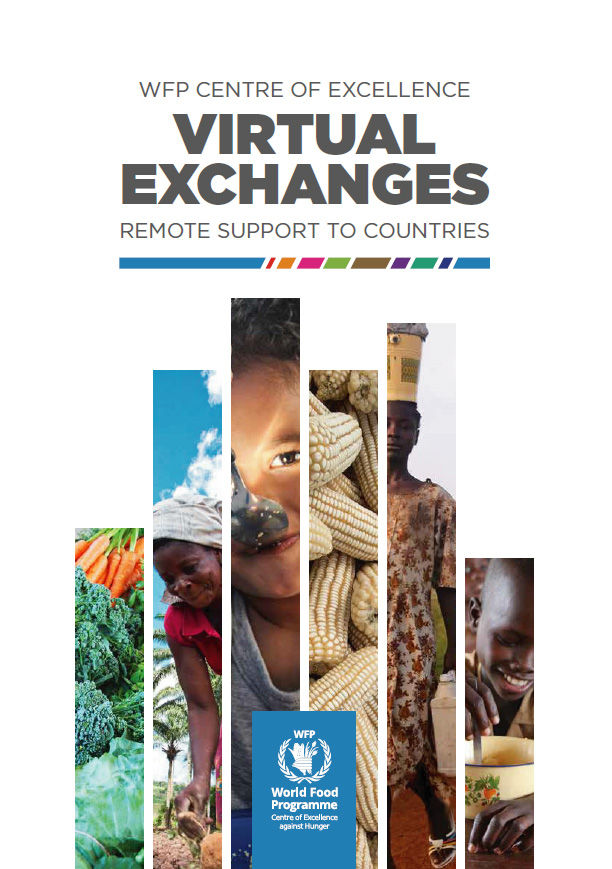
WFP Centre of Excellence Brazil Virtual Exchanges: Remoto Support to Countries
Since 2011, the WFP Centre of Excellence against Hunger Brazil has been engaging, either onsite and/or remote, in technical assistance and capacity strengthening in development contexts for Africa, Asia, and Latin America. The WFP Strategic Plan 2017-2021 and Agenda 2030 provide the WFP CoE with an opportunity to strengthen its remote assistance’s conceptual and operational framework to further contribute to national SDG2 efforts and results.Library





